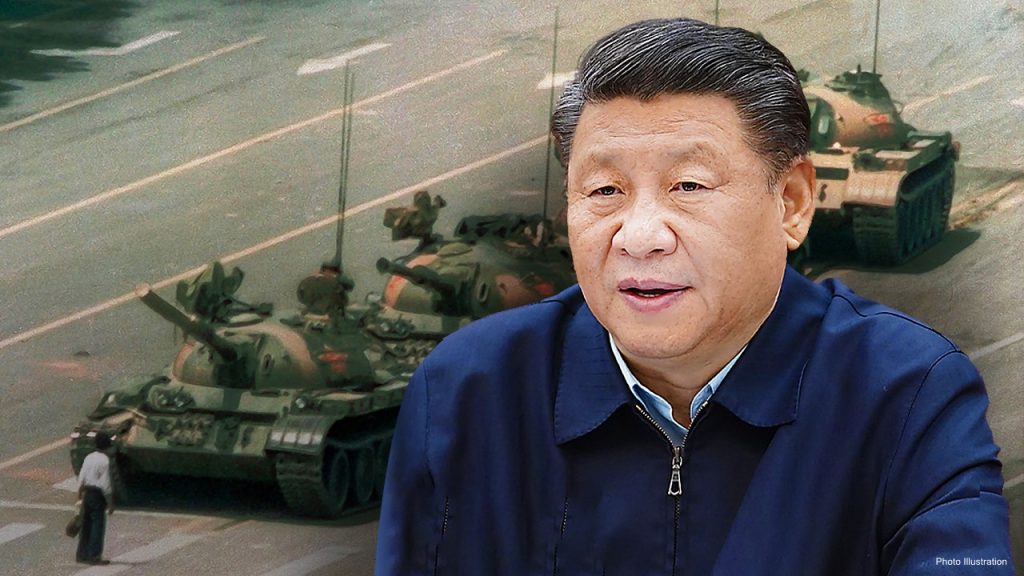The anniversary of the 1989 Tiananmen Square massacre has once again highlighted China’s treatment of dissent and the state of U.S. relations with Beijing. The brutal crackdown on peaceful protestors led to hundreds, possibly thousands, of deaths. The West widely condemned the massacre, but China has never apologized or acknowledged the events. Despite this, China’s reputation was rehabilitated within a few years, and the U.S. attempted to rebuild friendly relations, which some experts argue was a mistake. The approach changed during the Trump administration, but has since reverted to a pre-Trump policy that is not working for the U.S. or the free world.
The famous image of a man blocking tanks in Tiananmen Square continues to be a symbol of the massacre that has not been forgotten. The Chinese government’s refusal to apologize or investigate the events has raised concerns about continuing human rights abuses in the country. The engagement policy with China has been criticized as it has only funded a more repressive adversary that seeks to defeat the West. Under Chairman Xi’s rule, China’s behavior has worsened with ongoing genocide against the Uyghurs, provocations in the South China Sea, and comprehensive espionage campaigns against the U.S.
The evolution of China’s domestic policies and international relations has reshaped global norms, leading China to pursue its goals more aggressively. American policymakers have struggled to adapt to this shift, especially as China under Xi Jinping has shown no willingness to liberalize and is intent on becoming the most dominant power. The American public, shocked by the Tiananmen Square massacre, has had to reconcile their expectations with China’s actions. Despite the underlying belief in constructive engagement with China, the assumptions that China would reform economically and politically have proven to be faulty.
The human rights tragedy in Xinjiang, where the Uyghur population is facing severe persecution, echoes the events of Tiananmen Square. Reports of genocide and crimes against humanity against the Uyghurs have deepened concerns about China’s human rights abuses. The U.S. has tried to highlight these concerns, but the belief in engaging with China for mutual benefit has overshadowed human rights issues. Understanding the nature of the Chinese Communist Party’s treatment of its own people is crucial, as it can provide insights into how China may behave towards its neighbors as it grows stronger and more aggressive.
In conclusion, the legacy of the Tiananmen Square massacre continues to shape U.S.-China relations and global perceptions of China’s human rights record. The lack of accountability for the events of 1989, coupled with ongoing human rights abuses in Xinjiang, highlights the challenges of engaging with China. American policymakers are grappling with the need to reassess their approach to China in light of its behavior under Xi Jinping. Ultimately, understanding China’s treatment of dissent and minorities can provide valuable insights into its future actions on the world stage.


